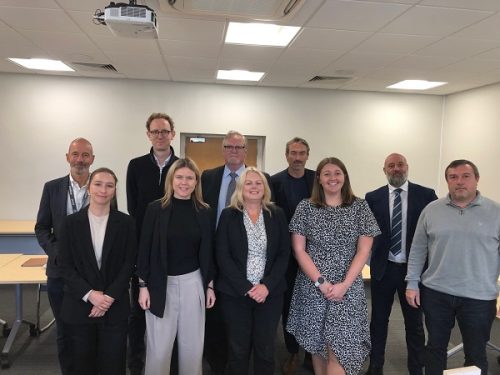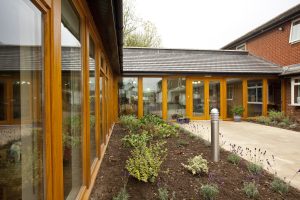Round table report: how the East Midlands can boost residential-led regeneration

The East Midlands Combined County Authority may only be six months old, but it has been welcomed by developers and regeneration experts as an ideal vehicle to kickstart much-needed investment into the region, as the attendees at our recent round table discussed.
The panel kicked off the discussion on the subject of how the nascent East Midlands Combined County Authority can help address issues of scale and upfront costs that may be prohibitive for individual councils.
By working together across a wider region, the Combined Authority can pool resources and expertise to make larger projects more viable, they said.
Jack Edwards of Phoenix revealed that he had been working with several London councils and the Greater London Authority around few London councils and the GLA around the sort of projects that they can put forward, and sometimes where scale is an issue.
He said: “While it might be that actually you have projects that maybe don’t quite work, or the set-up cost is prohibited for a single council, when you think slightly wider, and you have a bit more sort of scope, actually, they start to become a bit more viable.”
John Wood from Grainger said that, although his company hadn’t come into contact with the EMCCA as yet, he’d seen how the model has worked elsewhere.
He added: “What I’ve seen is combined authorities tend to have access to the cash to unlock a site. So we have seen it working around the country.”
Tammy Whitaker from Derby City Council was upbeat about the new combined authority.
She said: “I think the Combined Authority gives us an opportunity to look at housing across the piece and get some real strategic approaches to delivering numbers, which is what we’re going to need to do.
“I think the challenge for us will be about how we can utilise the best of the public and private sector working together to unlock those really challenging sites.”
Paul Seddon from Nottingham City Council was equally as optimistic.
He said: “As a region it’s become increasingly difficult to to have the broad, big scale picture discussion around what is brand East Midlands How do we? How do we do that in a backdrop NIMBYism was powerful. What devolution can do is shift the conversation towards YIMBYism. Fingers crossed.”
Keith Girling from Nottinghamshire County Council pointed towards the cash that is set to come from Whitehall into the EMCCA.
He added: “I think the Combined Authority is absolutely vital to the to the East Midlands becoming a bigger player. We have always been a poor relation in terms of funding from government.
“If you look at in transport, in regeneration, and pretty much every criteria, we’ve been left behind. So, it’s good that the money’s being taken from government and spent locally.
“I don’t think we’re going to see anything major happen from Combined Authority yet, because it’s still setting up. It’s a brand new organization. But if you look at Manchester, for example, how they first started, it was a slow, slow start, but then once they got going… well, they’ve doing some really, really great work.”
Vicky Robb from EMH said she was excited for the Combined Authority and how it would benefit how her company can provide housing in the future.
She said: “We’re really positive about it. At the moment, we go to different local authorities and find such differences in terms of their strategic housing policies in relation to affordable housing, which is our game. And you know, with some local authorities, it does put you off operating in those areas.
“So, overall, we’re super-positive about a combined authority and how we hope it is just going to make make life easier.”
However, others were a little bit more lukewarm, adopting a more “wait and see” approach, such as Rhiannon D’Arcy from Placefirst – a company making its first forays into the East Midlands.
She said: “It’s interesting, obviously, to understand what that long term vision is. At the moment I think it’s great for the area, and I completely all for evolution.
On the other side of it, it’s really early days and until they’ve deployed what money they’ve got, well – the proof is in the pudding. At the moment, they haven’t done anything, and, until they do, will they be in with a chance of getting another chunk of money later down the line?”
Girling said that East Midlands Mayor Claire Ward and her team were “desperate” to get things done.
He added: “If you’ve been in regeneration, you know, things take a long time. So, she’s ot to show that things are moving along and things are happening. She’ll have to pick projects ready to go.”
Kieron Crowther from Nelsons mentioned perceived “tribalism” in the East Midlands.
He said: “When we’re dealing with some developers, there’s still a prevalence for them to want a Derby, Nottingham or Leicester lawyer So I think the derby Nottingham Leicester approach is still quite prevalent for those developers.
“The other thing that we see, because I do a lot of option agreements and traditional contracts is that they often criticise us a lot in terms of being slow. However, we do also hear criticism in relation to other planning process generally, in terms of how quickly they can get Section 106 agreements through – and simply just the engagement with councils.”
Edwards was asked if Phoenix based its partners on experiences with councils.
“We’re reliant on brokers and developers,” he said. “They’ll give us the view on the kind of the the projects, but of course they’re heavily incentivised to try and pick the right partners who will be good on things like planning.
“However, I think I’d be the first person to say that you want to develop your own opinion and have a good read on these sorts of things. And I think as we build our transaction, book we get good experiences that we can then build on. We feel we then have a good understanding of what works, what doesn’t.”
Talk turned to how the drive to net zero was impacting residential development.
For Lee Parry and Vistry, net zero was still expensive. “That goes without saying,” he said. “That’s going to be the case until people get used to new methods of working and new ways of doing things. Ultimately, the more we push it, the cheaper it will become.”
The pandemic changed just about everything, but housebuilders continued to work through every lockdown.
The panel were asked if flexible working practices had changed the way in which developers were building houses.
Robb said: “I think the way people use the space is different. Now a dining room is an office. That’s how people see life going forward.”
Summing up, the panel thought that joint delivery vehicles could be the way forward. The East Midlands Combined County Authority could consider establishing joint delivery vehicles or special purpose vehicles to take on large-scale, complex projects. This could help align interests, share risks and streamline project delivery.
The key, they said, is for the East Midlands Combined County Authority to proactively engage with its private sector counterparts, identify areas of mutual interest and benefit, and then work collaboratively to leverage the combined scale, resources and expertise to deliver transformative projects across the region.






